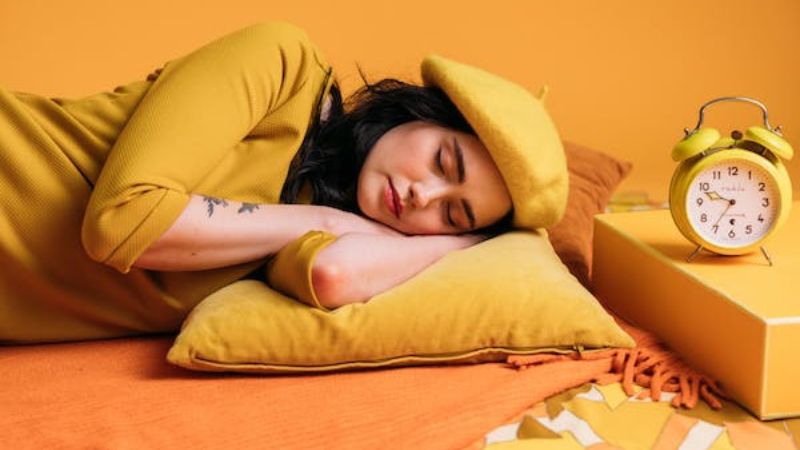Table of Contents:
- What are sleep disorders?
- What are the major categories of sleep disorders?
- What are the symptoms of sleep disorders?
- What causes sleep disorders?
- What are sleep disorder treatments?
- Conclusion
In the fast-paced world we inhabit, the significance of a good night’s sleep cannot be overstated. Yet, for a considerable portion of the population, the realm of peaceful slumber remains elusive due to sleep disorders. These conditions not only disrupt our nightly rest but can also have a detrimental impact on our overall health and well-being. In this blog, we delve into the realm of sleep disorders, their categories, symptoms, causes, and most importantly, holistic treatment approaches that have stood the test of time.

Understanding Sleep Disorders
Sleep disorders encompass a range of conditions that affect the quality, duration, and patterns of sleep. From insomnia and sleep apnea to restless leg syndrome and narcolepsy, these disorders can have far-reaching consequences on physical, mental, and emotional health. While occasional sleep disturbances are normal, chronic and severe sleep disorders warrant attention and intervention.
Major Categories of Sleep Disorders
Sleep disorders are generally categorized into four main groups:
- Insomnia: The inability to fall asleep, stay asleep, or experience restorative sleep. It often leads to daytime fatigue, irritability, and impaired cognitive function.
- Sleep Apnea: Characterized by interruptions in breathing during sleep, sleep apnea can lead to loud snoring, abrupt awakenings, and excessive daytime sleepiness.
- Parasomnias: This category includes sleepwalking, night terrors, and restless leg syndrome. These disorders involve abnormal behaviors or movements during sleep.
- Hypersomnias: Conditions like narcolepsy cause excessive daytime sleepiness, leading to sudden, uncontrollable episodes of falling asleep during daily activities.

What is the Short Sleep Syndrome?
The symptoms of sleep disorders can be diverse and often overlap. They include:
- Rare Genetic Condition: Short Sleep Syndrome is a genetic trait that enables individuals to thrive on remarkably little sleep, about 4-6 hours per night, without experiencing daytime sleepiness or health issues.
- Genetic Predisposition: Those with this syndrome have genetic variations that influence their sleep patterns, highlighting the intricate connection between genetics and sleep regulation.
- Minimal Sleep, Maximum Functionality: Unlike typical sleep needs, individuals with this syndrome are able to function well with significantly shorter sleep durations, defying conventional sleep norms.
- Complex Research Area: The syndrome intrigues researchers who aim to uncover the underlying genetic and neurological mechanisms that allow for such minimal sleep while maintaining cognitive and physiological health.
What Causes Sleep Disorders?
Advanced sleep phase disorder can stem from a variety of factors, both external and internal, contributing to disturbances in the natural sleep-wake cycle and overall sleep quality. Some key causes include:
Lifestyle Factors: Irregular sleep schedules, excessive caffeine or alcohol consumption, and lack of physical activity can disrupt sleep patterns.
Underlying Health Conditions: Medical issues like obesity, diabetes, cardiovascular diseases, and respiratory disorders (e.g., sleep apnea) can lead to sleep disturbances.
Mental Health Conditions: Anxiety, depression, PTSD, and other mental health disorders often impact sleep quality and patterns.
Neurological Factors: Advanced sleep phase disorders such as restless leg syndrome and narcolepsy are rooted in neurological abnormalities affecting sleep regulation.
What is Sleep Disorder Treatment?
Beyond conventional medical interventions, traditional practices and lifestyle adjustments can play a pivotal role in managing sleep disorders. Let’s explore some sleep disorder treatment:

The Ancient Wisdom of Clarified Butter and Yoga: Incorporating ghee (clarified butter) into your diet, along with practicing calming yoga poses and meditation, can aid in relaxing the body and mind.
Light Evening Meals for a Restful Night: Opt for easily digestible, nutrient-rich meals in the evening. Heavy, spicy, and greasy foods can disrupt digestion and sleep.
The Bedtime Elixir – Lukewarm Milk: A glass of warm milk before bed has been cherished for its calming effects. It contains tryptophan, an amino acid that promotes relaxation.
Timing Matters – Finish Dinner Early: Eating dinner at least 2-3 hours before bedtime prevents indigestion and allows your body to wind down.
The Magic of Massage with Oils: Gentle self-massage with relaxing oils like lavender or chamomile can soothe the body and mind before sleep.
Embrace the Darkness: Create a dark, quiet, and cool sleep environment to optimize the conditions for restful sleep.
Timing Your Workouts: Regular physical activity can improve sleep, but exercising too close to bedtime can have stimulating effects. Aim for early evening workouts.
Also Read: 10 Major Harmful Effects of Excessive Exercise
Conclusion
The journey to a restful night’s sleep is multifaceted. While medical interventions hold value, the integration of holistic practices can significantly contribute to managing sleep disorders. From timeless rituals like consuming warm milk to embracing the darkness of a serene sleep environment, these approaches tap into the wisdom of ancient traditions. By acknowledging the interconnectedness of our physical, mental, and emotional well-being, we pave the way for nights filled with restorative slumber and days brimming with vitality.
Thanks for Reading Our Blog
I hope you really found useful information in our blog. We appreciate your crucial time if you find it exclusive Please give us your suggested feedback. To find more blogs Go to the Home Page.
